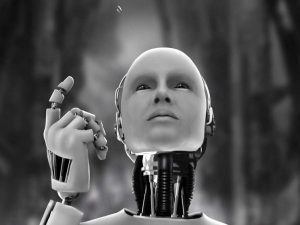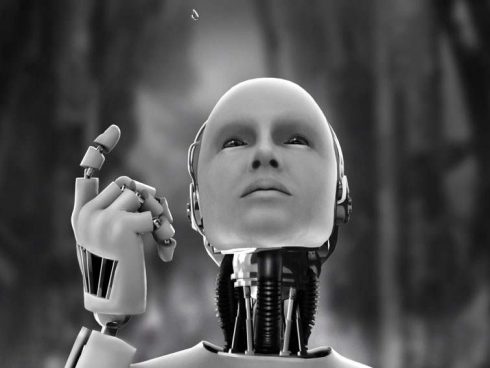This roundtable, in association with the Faraday Institute for Science and Religion, considers the impact of recent technological advances in Artificial Intelligence (AI) and robotics on religion, religious conceptions of the world, and the human. It draws attention to how such advances push religion beyond how it has been commonly defined and considered.
 In March 2016 ‘AlphaGo’, a Google/Deepmind programme, defeated an international champion at the Chinese game ‘Go’ in a five game match. This victory was, by current understandings of AI, a vast leap forward towards a future that could contain human-like technological entities, technology-like humans, and embodied machines. As corporations like Google invest heavily in technological and theoretical developments leading towards further, effective advances – a new ‘AI Summer’ – we can also see that hopes, and fears, about what AI and robotics will bring humanity are gaining pace, leading to new speculations and expectations, even amidst those who would position themselves as non-religious.
In March 2016 ‘AlphaGo’, a Google/Deepmind programme, defeated an international champion at the Chinese game ‘Go’ in a five game match. This victory was, by current understandings of AI, a vast leap forward towards a future that could contain human-like technological entities, technology-like humans, and embodied machines. As corporations like Google invest heavily in technological and theoretical developments leading towards further, effective advances – a new ‘AI Summer’ – we can also see that hopes, and fears, about what AI and robotics will bring humanity are gaining pace, leading to new speculations and expectations, even amidst those who would position themselves as non-religious.
Speculations include Transhumanist and Singularitarian teleological and eschatological schemes, assumptions about the theistic inclinations of thinking machines, the impact of the non-human on our conception of the uniqueness of human life and consciousness, and the moral boundary work of secular technologists in relation to their construct, ‘religion’. New religious impulses in the face of advancing technology have been largely ignored by the institutions founded to consider the philosophical, ethical and societal meanings of AI and robotics. This roundtable is an initial conversation on this topic, with the intention for further discussion and publications.
Podcast: Play in new window | Download | Embed
Subscribe: RSS
You can download this interview, and subscribe to receive our weekly podcast, on iTunes. If you enjoyed it, please take a moment to rate us. And remember, you can use our Amazon.co.uk, Amazon.com, or Amazon.ca links to support us at no additional cost when buying academic texts, tin foil hats, Jeff Goldblum custom water proof shower curtains, and more.











